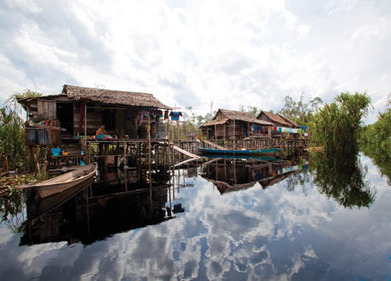Jan 31, 2013 NATIONAL GEOGRAPHIC Fourteen endangered Borneo pygmy elephants died of mysterious causes, conservationists.
Malaysian authorities discovered a group of elephant carcasses close together in the Gunung Rara Forest Reserve, located in the northeastern corner of Borneo (map), a Southeast Asian island shared by Indonesia, Malaysia, and Brunei.
"We don't know officially yet how they died, but what we do know is this is an area of forest that is being cleared for plantations, and it's very common that when the forest is cleared, conflict between humans and elephants spikes," said Long.
For instance, in agricultural areas in neighboring Sumatra, people have put out poisoned fruit for elephants to eat, causing a whole herd to drop dead in one area. The poison is usually whatever is locally available, such as rodenticide, he said.
Jan 30, 2013
MORE BORNEO PYGMY ELEPHANTS FOUND DEAD, TOLL RISES TO 13 - Poisoned? http://www.huffingtonpost.com/2013/01/30/borneo-pygmy-elephants-dead_n_2579880.htmlhttp://www.npr.org/2012/10/25/163629043/in-a-tanzanian-village-elephant-poachers-thrive
March 17, 2013 - Focusing on Wildlife
NEW PLANTATION CONCESSIONS THREATEN BORNEO PYGMY ELEPHANTS http://focusingonwildlife.com/news/new-plantation-concessions-threaten-borneo-pygmy-elephants/
PALM OIL ECOCIDE - THE DEFORESTATION HOLOCAUST: Fast-Tracking Our Own Extinction http://www.scoop.it/t/biodiversity-is-life/p/1510545458/fast-tracking-our-own-extinction-the-deforestation-holocaust-
WATCH
The Ecologist
"LIQUID IVORY: HOW PALM OIL IS KILLING INDONESIA'S ELEPHANTS" http://www.youtube.com/watch?feature=player_embedded&v=vwI-N5KSUjQ
MORE ON ELEPHANTS, POACHING AND DECLINE
http://www.scoop.it/t/biodiversity-is-life?q=elephants



 Your new post is loading...
Your new post is loading...








